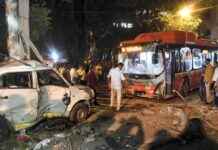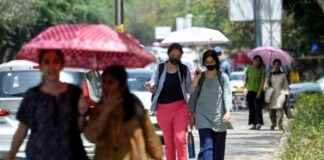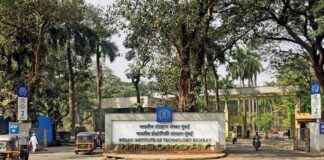Rare ‘Fetus in Fetu’ Condition Unveiled in Pregnant Woman in Maharashtra’s Buldhana District
In a striking medical revelation, a 32-year-old pregnant woman in Maharashtra’s Buldhana district has been diagnosed with ‘fetus in fetu,’ a remarkably rare condition where a deformed fetus is nestled within the body of another fetus, as reported by PTI. This discovery unfolded during the woman’s routine check-up at the Buldhana District Women’s Hospital a few days ago, shedding light on this unusual congenital defect. The woman is currently 35 weeks pregnant, awaiting further medical interventions to address this unique situation.
Unraveling the Rarity: ‘Fetus in Fetu’
The intricate details of this medical anomaly were elucidated by hospital obstetrician and gynecologist Dr. Prasad Agarwal, who described this case as exceptionally rare, occurring only once in every five lakh pregnancies globally. With a mere 200 documented cases worldwide, including a small fraction in India, the rarity of ‘fetus in fetu’ is truly remarkable. What sets this case apart is the timing of the diagnosis, as previous instances have typically been identified post-delivery. Dr. Agarwal’s sharp eye and keen observation skills were pivotal in recognizing the abnormality during the sonography, unveiling a grossly normal growing fetus with peculiar bone structures within its abdomen.
Upon further examination and consultation with radiologist Dr. Shruti Thorat, the diagnosis of ‘fetus in fetu’ was confirmed, prompting the immediate referral of the woman to a specialized medical facility in Chhatrapati Sambhajinagar for a safe delivery and subsequent medical procedures. This case serves as a testament to the importance of vigilance and expertise in uncovering rare medical conditions that require prompt intervention and specialized care.
Tragic Loss Highlights Healthcare Disparities in Palghar
Sadly, in a stark contrast to the hopeful scenario in Buldhana, tragedy struck in Palghar district as a 26-year-old pregnant woman, Pinki Dongarkar, lost her life along with her unborn child while being transported to a hospital in an ambulance lacking critical medical facilities, including oxygen support. The harrowing incident, which transpired on a fateful evening, once again underscores the pressing issue of inadequate healthcare services in tribal and rural regions, amplifying the challenges faced by vulnerable populations in accessing timely and comprehensive medical care.
Hailing from Sarni village, Pinki Dongarkar’s critical condition necessitated urgent medical attention, prompting her family to rush her to Kasa Rural Hospital. However, the complexity of her situation, compounded by the tragic occurrence of Intrauterine Fetal Death (IUFD), mandated her referral to Silvassa city in the neighboring Union Territory of Dadra and Nagar Haveli for advanced treatment. This heartbreaking turn of events serves as a poignant reminder of the disparities in healthcare infrastructure and resources that continue to plague underserved communities, highlighting the urgent need for equitable access to quality healthcare services for all individuals, regardless of their geographical location.
In the realm of healthcare, each case presents a unique tapestry of challenges, triumphs, and uncertainties, shaping the narrative of human resilience and medical advancement. As we navigate the complexities of rare medical conditions and healthcare disparities, the stories of these women serve as poignant reminders of the fragility of life, the resilience of the human spirit, and the unwavering commitment of healthcare professionals to provide compassionate care in the face of adversity. Let us heed these narratives as catalysts for change, advocating for a healthcare system that prioritizes equity, accessibility, and quality care for all individuals, ensuring that no life is lost to preventable circumstances.




















